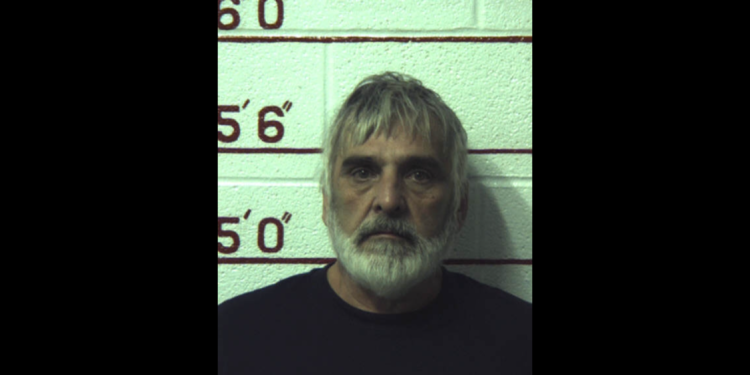DUBOIS – A DuBois man will stand trial for the murder of a man reportedly having an affair with his wife.
On March 17, DuBois City police say Glen Chester Johnston, 60, shot Jude Srock, 46, also of DuBois, in a parking lot near 26 S. Franklin St.
After a preliminary hearing Wednesday in District Judge Dave Meholick’s office, Meholick ruled there was enough evidence to send the case on to the court of common pleas for further disposition.
Johnston is charged with criminal homicide, two counts each of aggravated assault and simple assault as well as recklessly endangering another person.
Because homicide is not a bailable offense, Johnston remains in the county jail.
At one point in the hearing, William A. Shaw Jr., defense attorney for Johnston and the former Clearfield County District Attorney, stated that DuBois City Assistant Police Chief Dustin Roy, who testified he was listening in on a cell phone conversation between Johnston and his wife, had committed a crime by violating a wiretapping law.
When current Clearfield County District Attorney Ryan Sayers responded that the officer was just listening and there was no privacy issue here, Shaw stated that Sayers was not competent to make a judgment on this and that he should be replaced as prosecutor by someone in the attorney general’s office.
To allow further testimony on the conversation, Shaw said Sayers needed to prove a crime had been committed first.
Sayers then called Kim Shaffer Snyder, coroner, to the stand to confirm the victim was dead and the manner of death was homicide.
Shaw aggressively questioned Shaffer Snyder abut how she determined the victim was dead and that the manner of death was homicide, as if she did not have over 20 years of experience in that role.
When Roy re-took the stand, he testified that after Johnston was taken into custody, he was interviewed at the police station.
Johnston explained that he and his wife were having marital problems and he discovered at Thanksgiving she was having an affair. They were trying to work things out.
On March 17, she said she was going to tell the victim it was over. Instead, Johnston told her he would “take care of it”, Roy testified.
It was then that Johnston drove to the lot, got his gun out of his glove compartment, loaded it, put it in his pocket and waited for Srock.
Johnston told Roy that about five minutes later, the victim walked out of a building. Johnston went toward him and asked if they were going to talk about the affair.
As Johnston pulled the gun from his pants, he accidentally pulled the trigger and it discharged into the ground.
After the victim asked “what are you going to do, shoot me?” Johnston raised the gun and pulled the trigger, according to Roy.
Roy also explained that a witness gave a written statement similar to Johnston’s recollection of events. This witness commented that the victim “didn’t have a chance.”
Trooper Seth Gould of the state police testified that he was called to assist police in apprehending Johnston. He spotted Johnston’s car on state Route 119 and was able to turn around and then park behind Johnston’s car, which had pulled over. Johnston surrendered to him and was taken into custody.
Officer Paul Brosky of DuBois City police testified that he was the first on-scene where he saw a male lying down and another man on the phone to county control. He was told the suspect had fled.
Brosky did CPR but said he was not getting any response from the victim.
After emergency personnel arrived, Brosky responded to the spot where Johnston was being taken into custody. He stated there were two handguns on the front-passenger seat along with ammunition in Johnston’s vehicle, which was then towed to the police station.
In his cross examination of Brosky, Shaw asked for specifics on where and how Brosky had received CPR training.
Sayers then rested the state’s case.
In his closing, Shaw asked Meholick to dismiss all the charges, claiming the commonwealth did not present enough evidence for the case to continue.
Sayers responded that there was sufficient evidence including testimony on the victim’s death, Johnston’s statements about what happened and the guns being found in the vehicle.
Meholick agreed, stating he was satisfied that the case had covered all the elements of the offenses enough to allow the case to move on to the court of common pleas.




